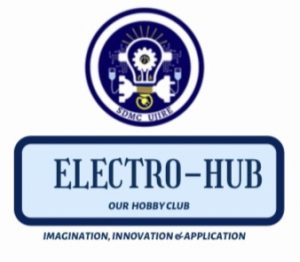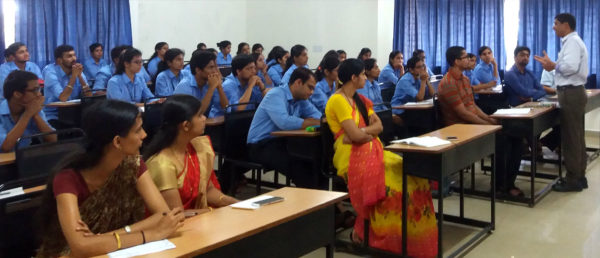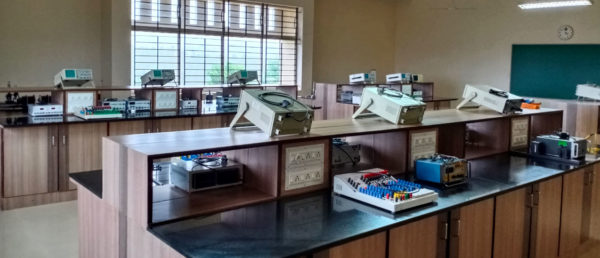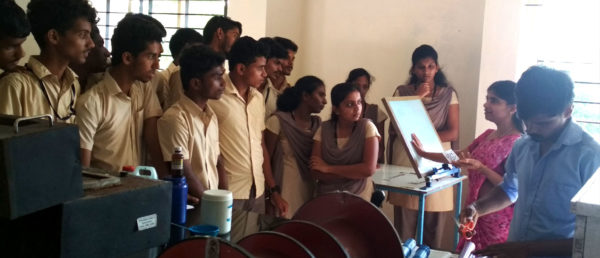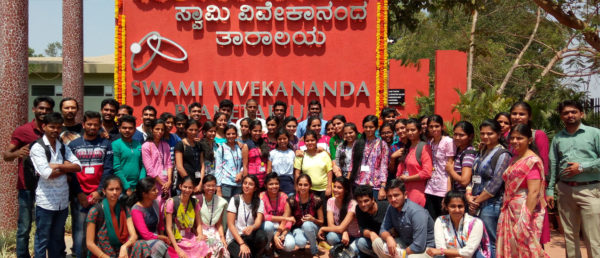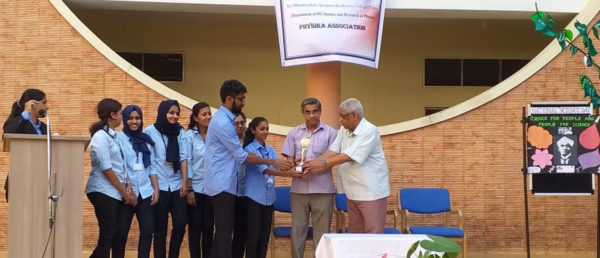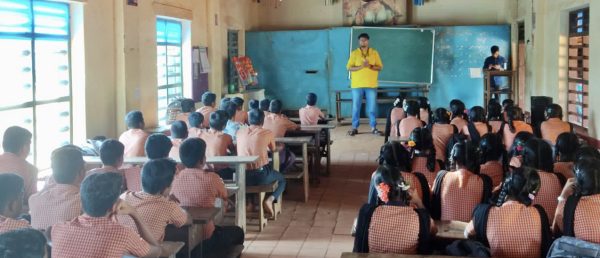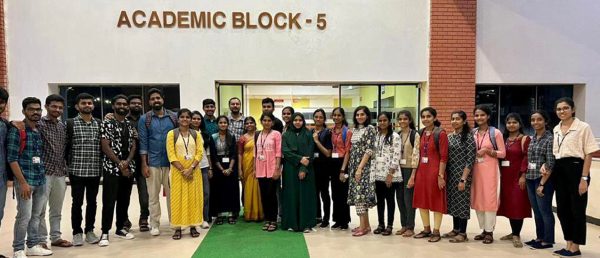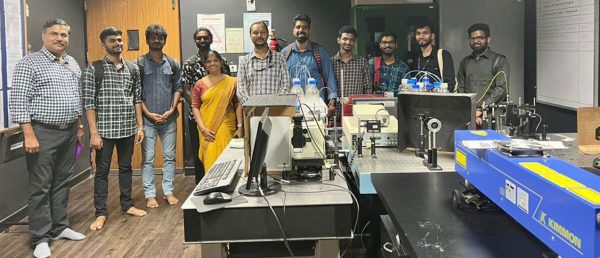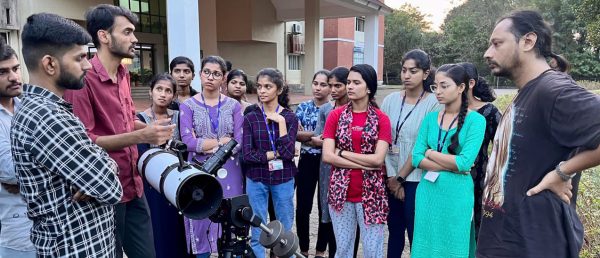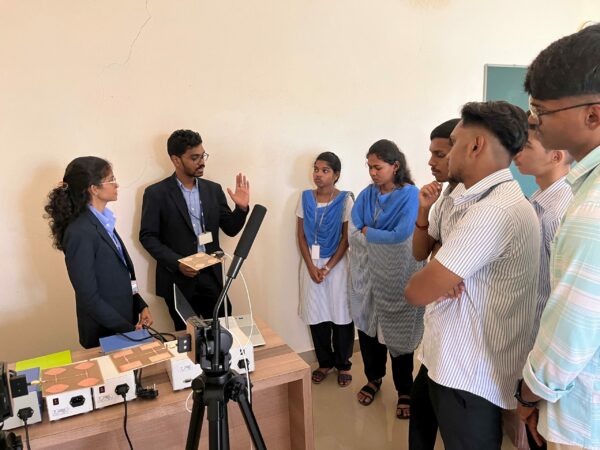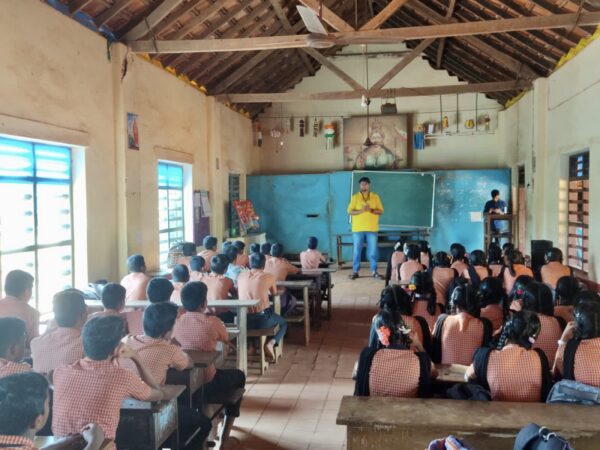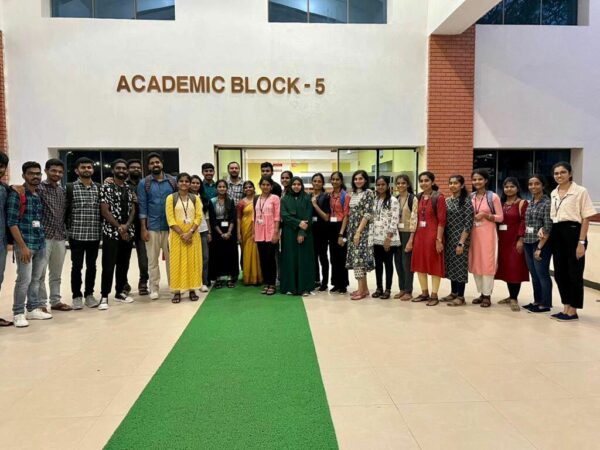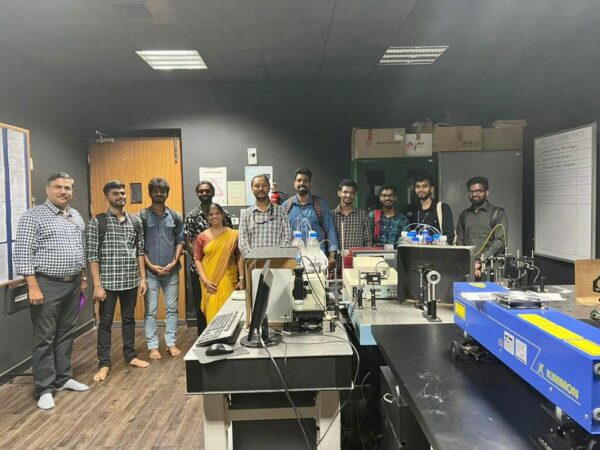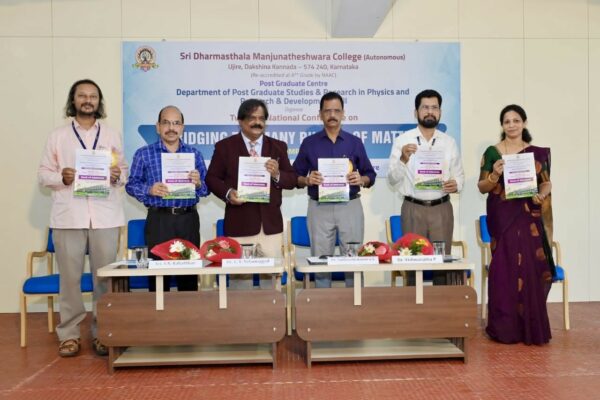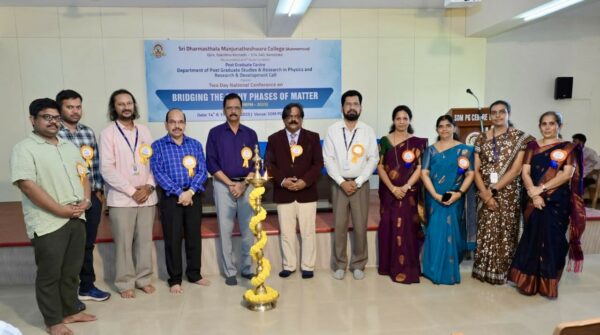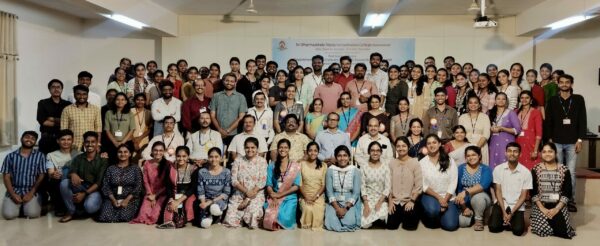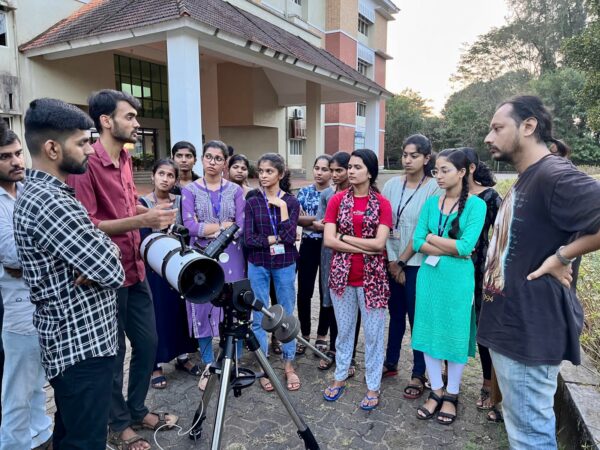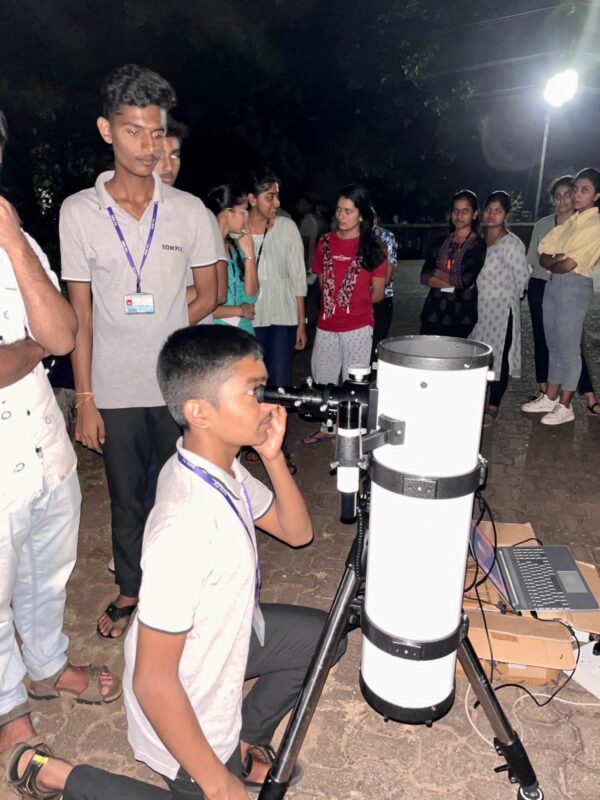Established in 2010, the department offers a two year Master’s Program in Physics. With the objective of encouraging the students from remote areas to pursue higher education in Physics the department established a study platform which helps the students to excel in competitive examinations such as CSIR-UGC NET, JEST, K-SET, etc. Thrust areas of the department for research are in the fields of Electronics and Condensed Matter Physics. The lab facilities of the department cater to the needs of the students and research scholars. The department encourages the students to undertake internships in the institutions of repute.
Physics deals with phenomena that range in size from the infinitesimal subatomic particles to the impossibly vast universe, while ordinary existence can be found somewhere in between these two. Physics is about translating a deep understanding of the theoretical underpinnings of Nature into concrete results to benefit society. The Masters’ programme in Physics is designed to educate students to be able to stay at the forefront of fundamental understanding, and to develop practical applications.
Trajectories of the programme at SDM
The goal of Physics for Energy is to apply Physics to create new energy technologies and materials that effectively produce, harvest, convert and store energy. Applying Physics knowledge to the design of sophisticated scientific equipment, detectors and telescopes is known as “Physics for instrumentation”.
Physics for Health and Life uses physical phenomena such as sound, light or particles for producing images with resolutions down to the subcellular scale, nanotechnology to explore and engineer biology, and radiation studies for medical therapies.
Physics for Quantum Devices and Quantum Computing studies quantum phenomena and exploits novel principles in nanostructured devices. The unusual behavior of the quantum world is revealed in delicate experiments, geared towards developing building blocks for devices with unprecedented functionality and scale, especially given current trends in Quantum Computation, Quantum Cryptography etc.
Career opportunities for graduates of the Physics program have excellent employment prospects – in public and private sectors in professions like instrumentation, industrial management, consulting, research and development, and teaching/education. Others decide to enroll in PhD programs to pursue research careers in academia.
Research in Applied Physics has led to the use of electricity and magnetism for lighting and propulsion; given birth to the semiconductor industry that has provided us with the conveniences of modern electronics and has played an important part in the development of biomedical technology, communication, antenna & networking.
Also in line with present-day scenario and current trends, modern applications like Internet of Things, Robotics and Embedded Systems are highly dependent on the knowledge of Electronics.

